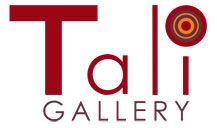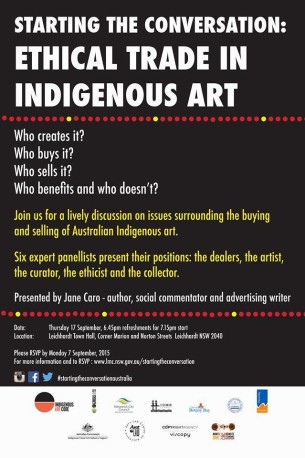
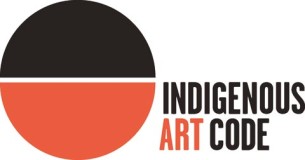
Tali Gallery is a Member of the Indigenous Art Code
There is a forum concerning trading in Indigenous Art to be held at Leichhardt Council on the evening of September 17th – it promises a lively and interesting discussion.
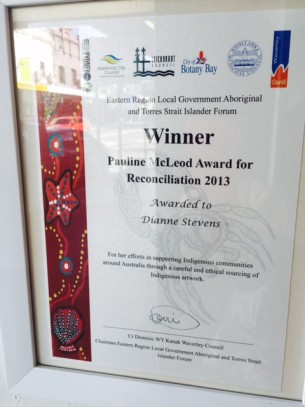
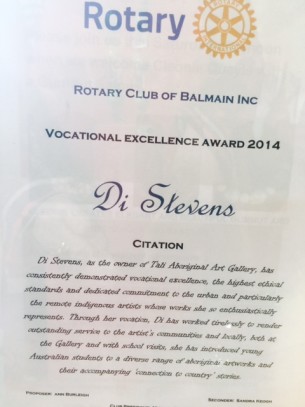
Tali Gallery has been recognised on several occasions for ethical trading in Indigenous Art as well as our philanthropic efforts. Di has participated in two similar events previously, both on the topic of ethically sourcing Indigenous art – including giving a talk in 2012 along with Indigenous curator, Djon Mundine, and then participating in a panel moderated by Art Consultant, Jane Raffan, in 2013, both for Art Month Sydney. It is important for both Aboriginal artists and art buyers that their paintings have been created under fair conditions and with appropriate remuneration. Both ethics and provenance are important.
Genuine Fair Trade means nobody is disadvantaged. You will be benefiting from higher quality products that have genuine value and you can also be assured that you’re making a positive difference to the lives of others and the world at large.
As a Gallery owner, I’ve heard people say they don’t care where their Aboriginal art (from remote communities) comes from and they just want to hang something on the wall. I’m sure those people would genuinely care if they understood the differences at play between an ethical versus an unethical purchase, and the benefits enjoyed by the consumer as well as the artist. While there is no formal Fair Trade classification system for Aboriginal art, it is clear that ethically sourced art can relieve poverty and advance living conditions in remote communities. Not for profit Aboriginal Owned Corporations and their agent Galleries ensure that exploitation is inhibited. There is a guarantee that the artist has been fairly remunerated, and a portion of the money enables the art centre to provide art materials and wide ranging resources for the wellbeing of the community to encourage self determination, including training and employment. The benefit to the consumer is cultural integrity and assured authenticity which in turn means watertight provenance. Again, we all need to spare a thought about where and how our purchases are created, take responsibility for what we purchase and be careful that we’re not unwittingly passing the buck. Everyone wins.
